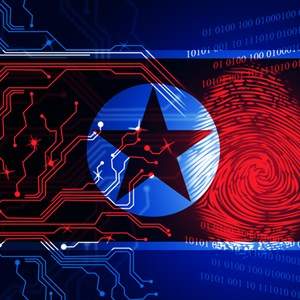US Issues North Korean Cyber-Threat Warning

The United States has published fresh guidance on the "significant threat" posed by North Korea's "malicious cyber activities."
A comprehensive advisory jointly issued April 15 by the US Departments of State, Treasury, and Homeland Security, and the Federal Bureau of Investigation highlighted the threat posed by the East Asian country and gave tips on how to stay cyber-safe.
In particular, the alert warned Americans to be on the lookout for crypto-jacking, extortion campaigns, cyber-enabled financial theft, and money-laundering scams.
The alert, published today on the Cybersecurity and Infrastructure Security Agency website, states: "The advisory highlights the cyber threat posed by North Korea—formally known as the Democratic People’s Republic of Korea (DPRK)—and provides recommended steps to mitigate the threat."
According to the advisory, the DPRK's digital dastardliness could prove dangerous not just to the United States, but to the whole world.
The alert warns: "The DPRK’s malicious cyber activities threaten the United States and the broader international community and, in particular, pose a significant threat to the integrity and stability of the international financial system."
It is suggested in the alert that the DPRK is using the profits from cyber-crime to strengthen its military capabilities.
"Under the pressure of robust U.S. and UN sanctions, the DPRK has increasingly relied on illicit activities—including cybercrime—to generate revenue for its weapons of mass destruction and ballistic missile programs," states the advisory.
Financial gain is not the only motive for carrying out cyber-attacks, according to the alert.
"The DPRK has the capability to conduct disruptive or destructive cyber activities affecting U.S. critical infrastructure," warned the alert's authors. "The DPRK also uses cyber capabilities to steal from financial institutions, and has demonstrated a pattern of disruptive and harmful cyber activity that is wholly inconsistent with the growing international consensus on what constitutes responsible State behavior in cyberspace.
The UN Security Council 1718 Committee Panel of Experts' 2019 mid-term report mentions that it was investigating dozens of suspected DPRK cyber-enabled heists and that, as of late 2019, the DPRK has attempted to steal as much as $2bn through illicit cyber-activities.
Photo and Link: https://www.infosecurity-magazine.com/news/us-issues-north-korean-cyberthreat/




